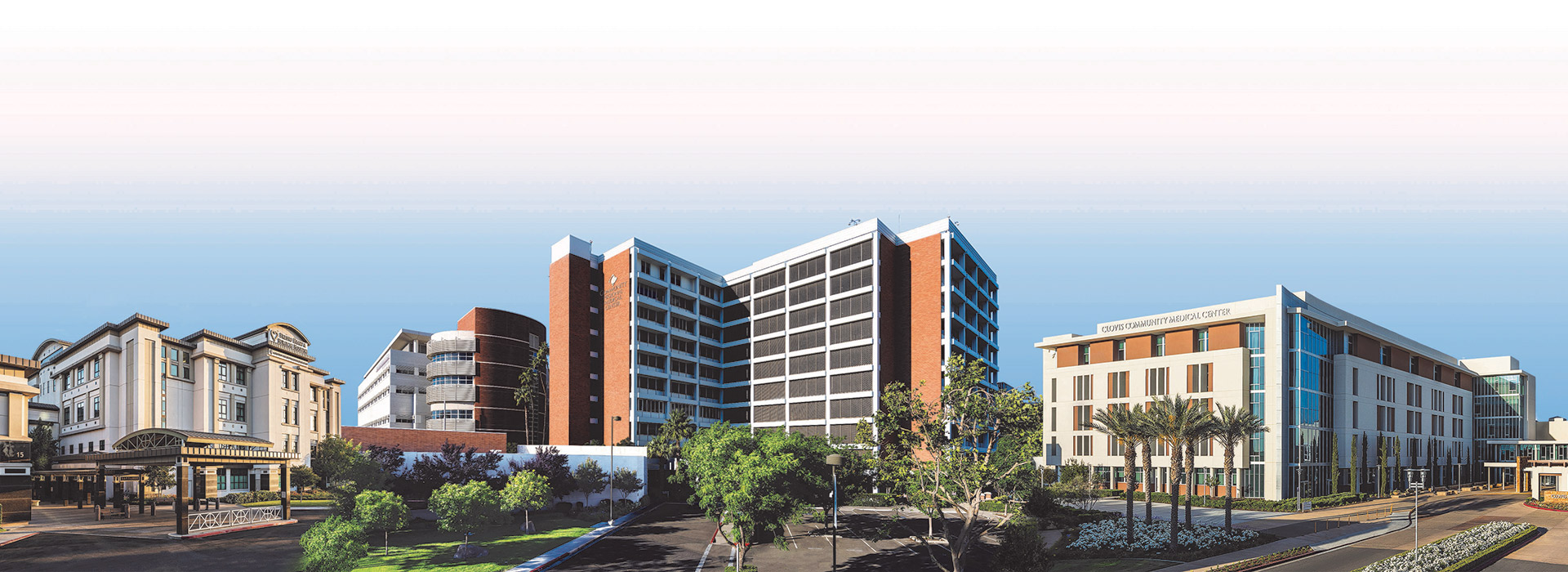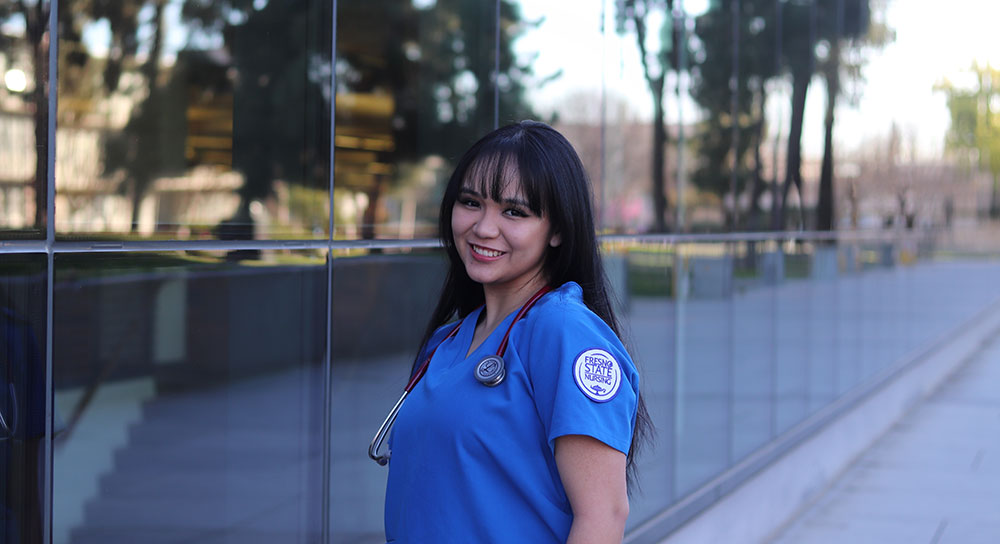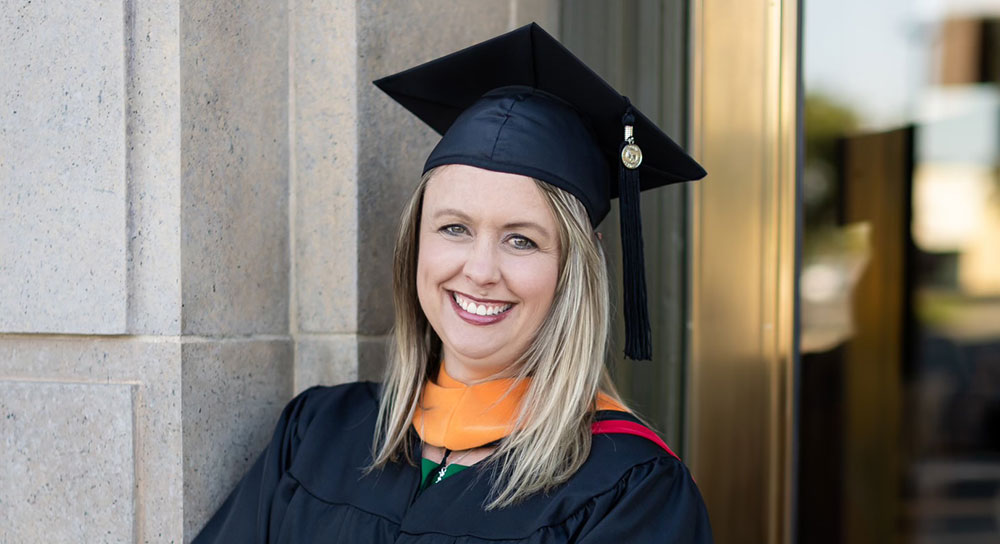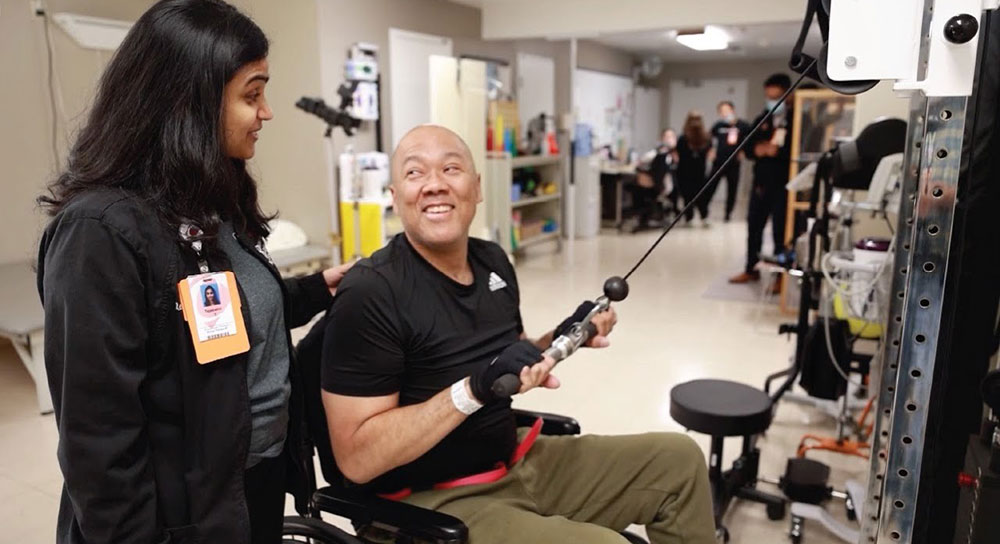Wednesday, February 27, 2013, 11:51 AM
Better ways to deliver medicine shared internationally
While we're treating patients, we're also documenting and researching safer, better ways to deliver medicine. Last month, our Community Regional Medical Center multidisciplinary team shared the results of this research on posters presented at the Society of Critical Care Medicine's Annual Congress conference in San Juan, Puerto Rico.
Editorial Staff
Communications & Public Relations Team
While we're treating patients, we're also documenting and researching safer, better ways to deliver medicine. Last month, our Community Regional Medical Center multidisciplinary team shared the results of this research on posters presented at the Society of Critical Care Medicine's Annual Congress conference in San Juan, Puerto Rico.
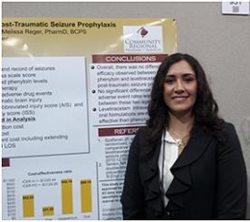 |
| Mallory Cruz, PharmD, BCPS presenting: “Cost-Effectiveness of Levetiracetam versus Phenytoin for Post-Traumatic Seizure Prophylaxis.” |
The Society of Critical Care Medicine is the only organization that represents all professional components of the critical care team and has approximately 16,000 members representing over 100 countries. SCCM promotes excellence in patient care, education, research and advocacy. Research and study for both posters were conducted at Community Regional and contained a wealth of knowledge and clinical information that we got to share with other health care practitioners in critical care around the world.
Mallory Cruz, PharmD, BCPS, presented her research with co-investigators Staci Anderson, PharmD, BCPS, and Melissa Reger, PharmD, BCPS, on “Cost-Effectiveness of Levetiracetam versus Phenytoin for Post-Traumatic Seizure Prophylaxis.” Levetiracetum is a medication used to prevent seizures that is a bit more expensive than the older medication phenytoin. Their research showed that this more expensive medication had less side effects, was easier for patients to take and in the long run saved the hospital money because it was safer for patients. That's a win-win for everyone!
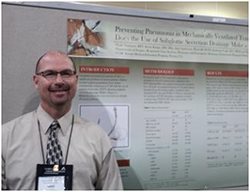 |
| Wade Veneman, RRT presenting: “Preventing Pneumonia in Mechanically Ventilated Trauma Patients: Does the Use of Subglottic Secretion Drainage Make a Difference?” |
Wade Veneman, RRT, presented his research with co-investigators Krista Kaups, MD, FACS, Staci Anderson, PharmD, BCPS, Kathleen Cagle, RN, MPH, and Hagop Afarian, MD, on “Preventing Pneumonia in Mechanically Ventilated Trauma Patients: Does the Use of Subglottic Secretion Drainage Make a Difference?” The group looked at whether a specialized tube used when patients need assistance breathing is better at pulling out saliva so it doesn't get into the lungs of trauma patients. The research found that there was really no difference but clinicians preferred this specialized tubing and it's become a standard of care in many facilities.
The multidisciplinary approach of these two projects brought together multiple departments within Community Regional including Surgery, Respiratory, Pharmacy and Emergency Medicine services. We're always looking at ways to make care more effective and safer for patients and in way that hopefully decreases costs for all of us.
Kudos to our folks for their hard work and great research!
Alice Robbins, PharmD, BCPS
PGY1 Pharmacy Residency Director
Professional Development Specialist
Community Regional Medical Center



